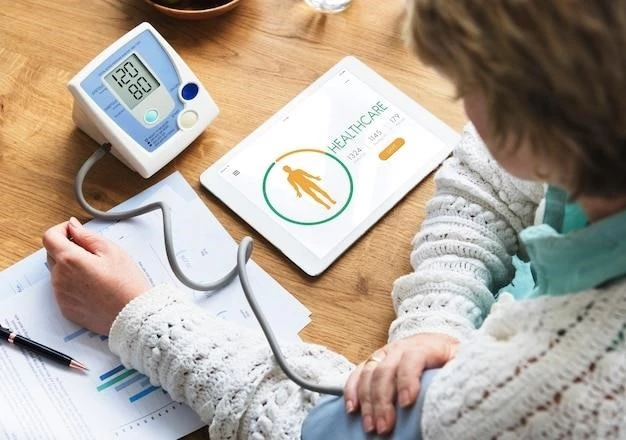Disease ౼ Diabetes, Insulin Dependent
Diabetes Type 1, also known as Insulin-Dependent Diabetes, is a condition where the pancreas produces little to no insulin. It is an autoimmune disease where the body’s immune system attacks the insulin-producing cells. Without enough insulin, blood sugar levels rise, leading to serious complications.
Understanding Diabetes Type 1
Diabetes Type 1, often referred to as Insulin-Dependent Diabetes, is a chronic condition characterized by the pancreas producing little to no insulin. Insulin is a hormone necessary to regulate glucose in the bloodstream and allow it to enter cells to be used for energy. In Type 1 diabetes, the body’s immune system mistakenly attacks and destroys the insulin-producing beta cells in the pancreas. This results in a lack of insulin, causing blood sugar levels to become too high.
Without enough insulin to move sugar into the cells, the body is unable to use glucose for energy properly. As a result, individuals with Type 1 diabetes often experience symptoms such as excessive thirst, frequent urination, unintentional weight loss, fatigue, and blurred vision. If left untreated, high blood sugar levels can lead to serious complications such as cardiovascular disease, nerve damage, kidney damage, and vision problems.
It is crucial for individuals with Type 1 diabetes to closely monitor their blood sugar levels, adhere to a treatment plan, and make lifestyle modifications to effectively manage the condition and reduce the risk of complications. Working closely with healthcare providers, including endocrinologists and diabetes educators, can help individuals with Type 1 diabetes lead a fulfilling life while effectively managing their condition.
Causes and Effects of Diabetes Type 1
Diabetes Type 1 is primarily caused by an autoimmune response in which the body’s immune system mistakenly attacks and destroys insulin-producing beta cells in the pancreas. The exact cause of this autoimmune response is still not fully understood, but both genetic and environmental factors likely play a role in triggering the immune system to attack the insulin-producing cells.
Individuals with a family history of Type 1 diabetes are at a higher risk of developing the condition. Additionally, certain environmental factors, such as viral infections or exposure to toxins, may trigger the autoimmune response in genetically susceptible individuals.
The effects of Diabetes Type 1 can be profound if not properly managed. Without sufficient insulin, glucose cannot enter cells to provide energy, leading to high blood sugar levels. Over time, persistent high blood sugar levels can damage blood vessels and nerves, increasing the risk of cardiovascular disease, kidney damage, nerve damage, and vision problems.
Uncontrolled diabetes can also lead to acute complications such as diabetic ketoacidosis (DKA), a serious condition characterized by high blood sugar levels, dehydration, and the presence of ketones in the blood. On the other hand, excessively high doses of insulin or skipping meals can result in hypoglycemia, where blood sugar levels drop dangerously low, causing symptoms like dizziness, confusion, and even loss of consciousness.
It is essential for individuals with Type 1 diabetes to work closely with healthcare professionals to manage their condition effectively, monitor their blood sugar levels regularly, and make necessary lifestyle adjustments to prevent complications and maintain optimal health.

Diagnosis and Management
Diagnosing Diabetes Type 1 typically involves a series of tests to assess blood sugar levels and the presence of autoantibodies that target insulin-producing cells. Common diagnostic tests include fasting blood sugar tests, oral glucose tolerance tests, and hemoglobin A1c tests, which provide an average of blood sugar levels over a few months.
Once diagnosed, effective management of Type 1 diabetes requires a comprehensive approach that includes monitoring blood sugar levels, administering insulin, making dietary adjustments, engaging in regular physical activity, and staying vigilant for signs of complications.
Monitoring blood sugar levels is a crucial aspect of diabetes management. This is often done using a glucometer, a device that measures blood sugar levels from a small drop of blood. By regularly monitoring blood sugar levels, individuals with Type 1 diabetes can make informed decisions about insulin dosages, diet, and lifestyle choices.
Insulin therapy is the cornerstone of treatment for Diabetes Type 1, as individuals with this condition do not produce enough insulin on their own. Insulin can be administered through injections using syringes or pens, or through insulin pumps, which deliver a continuous supply of insulin through a small tube inserted under the skin.
Managing Diabetes Type 1 also involves following a healthy and balanced diet that helps regulate blood sugar levels. Focusing on complex carbohydrates, fiber-rich foods, lean proteins, and healthy fats can aid in stabilizing blood sugar levels and promoting overall well-being.
Regular physical activity is beneficial for individuals with Type 1 diabetes as it helps improve insulin sensitivity, regulate blood sugar levels, promote weight management, and boost cardiovascular health. Consult with healthcare providers to develop an exercise plan tailored to individual needs and fitness levels.
Regular follow-ups with healthcare professionals, including endocrinologists and diabetes educators, are essential for monitoring progress, adjusting treatment plans, and addressing any concerns. By actively participating in the management of Type 1 diabetes and maintaining open communication with healthcare providers, individuals can better control their condition and reduce the risk of complications.
Treatment Options for Diabetes Type 1
Effective management of Diabetes Type 1 involves a combination of treatment options aimed at controlling blood sugar levels٫ providing the necessary insulin٫ and preventing complications associated with the condition.
Insulin Therapy⁚ Since individuals with Type 1 diabetes do not produce enough insulin٫ insulin therapy is crucial. Different types of insulin٫ including rapid-acting٫ short-acting٫ intermediate-acting٫ and long-acting٫ may be prescribed based on individual needs and lifestyle.
Insulin Injections⁚ Insulin injections are a common method of delivering insulin. This can be done using syringes, insulin pens, or jet injectors. It is important to rotate injection sites and follow proper injection techniques to ensure effective insulin absorption.
Insulin Pumps⁚ Insulin pumps are small, wearable devices that deliver a continuous supply of insulin throughout the day. They can provide more precise insulin dosing, offer flexibility in meal timing, and reduce the need for multiple daily injections.
Continuous Glucose Monitoring (CGM)⁚ CGM systems use sensors placed under the skin to monitor blood sugar levels continuously. This technology allows for real-time tracking of glucose levels, identifies trends, and provides alerts for high or low blood sugar levels.
Artificial Pancreas⁚ An artificial pancreas system combines insulin pumps with CGM technology to automate insulin delivery based on glucose levels. This innovative approach can help improve blood sugar control and reduce the risk of hypoglycemia.
Islet Cell Transplantation⁚ In select cases, islet cell transplantation may be considered for individuals with difficult-to-control Type 1 diabetes. Islet cells responsible for producing insulin are transplanted into the pancreas to restore insulin production.
Medical Alert Identification⁚ Wearing a medical alert bracelet or necklace that indicates the individual has Type 1 diabetes and requires insulin can be crucial in emergency situations where the person may not be able to communicate their condition.
It is important for individuals with Type 1 diabetes to work closely with healthcare providers to determine the most appropriate treatment plan based on their individual needs, lifestyle, and health goals. By actively engaging in treatment and staying informed about available options, individuals can effectively manage their condition and maintain a good quality of life.
Monitoring Blood Sugar Levels
Regular monitoring of blood sugar levels is a critical aspect of managing Diabetes Type 1 effectively. By keeping track of glucose levels throughout the day, individuals can make informed decisions about insulin dosages, dietary choices, and physical activity to maintain optimal blood sugar control.
Glucometer⁚ A glucometer is a portable device that measures blood sugar levels from a small drop of blood obtained by pricking the fingertip. It is essential for individuals with Type 1 diabetes to have a reliable glucometer and an adequate supply of testing strips to monitor blood sugar levels regularly.
Continuous Glucose Monitoring (CGM)⁚ CGM systems use sensors placed under the skin to measure glucose levels continuously throughout the day. These systems provide real-time data on blood sugar trends, high and low glucose alerts, and insights into how diet, exercise, and medication impact blood sugar levels.
Target Range⁚ Healthcare providers typically establish target blood sugar ranges for fasting, pre-meal, and post-meal levels based on individual needs and goals. Monitoring blood sugar levels allows individuals to determine if they are within their target range or if adjustments to insulin, diet, or activity are needed.
Logbook⁚ Keeping a logbook or using a smartphone app to record blood sugar readings, insulin doses, meals, physical activity, and any symptoms can provide valuable insights for healthcare providers when adjusting treatment plans during consultations.
Patterns and Trends⁚ By analyzing blood sugar patterns and trends over time, individuals can identify factors that contribute to fluctuations in glucose levels. This information enables them to make proactive changes to their diabetes management routine to achieve better blood sugar control.
Consultation⁚ Regularly sharing blood sugar logs and CGM reports with healthcare providers, such as endocrinologists or diabetes educators, allows for collaborative decision-making in managing Diabetes Type 1. Adjustments to insulin regimens٫ meal plans٫ or activity levels can be made based on the collected data.
Educational Resources⁚ Utilizing educational resources and attending diabetes management classes can enhance understanding of blood sugar monitoring techniques, interpretation of results, and the importance of maintaining consistent monitoring habits for optimal diabetes management.
By prioritizing regular blood sugar monitoring, utilizing advanced monitoring technologies, and actively engaging with healthcare providers, individuals with Type 1 diabetes can gain better insight into their condition, make informed choices, and take proactive steps to maintain stable blood sugar levels and overall well-being.
Lifestyle Changes for Managing Diabetes Type 1
Effective management of Diabetes Type 1 extends beyond medication and involves incorporating healthy lifestyle changes that can positively impact blood sugar control٫ overall health٫ and quality of life. Here are some key lifestyle modifications for individuals with Type 1 diabetes⁚
Healthy Eating Habits⁚ Adopting a balanced and nutritious diet plays a crucial role in managing blood sugar levels. Focus on consuming whole grains, fruits, vegetables, lean proteins, and healthy fats. Limit sugary foods, refined carbohydrates, and excessive intake of high-fat foods to help stabilize blood sugar levels.
Meal Planning⁚ Consistent meal timing and portion control are essential for managing blood sugar levels. Work with a registered dietitian to create a personalized meal plan that aligns with your insulin regimen, activity level, and health goals.
Regular Physical Activity⁚ Engaging in regular exercise offers numerous benefits for individuals with Type 1 diabetes, including improved insulin sensitivity, better blood sugar control, weight management, and cardiovascular health. Aim for at least 150 minutes of moderate-intensity aerobic activity per week.
Stress Management⁚ Stress can impact blood sugar levels and overall well-being. Practice stress-reducing techniques such as deep breathing, meditation, yoga, or hobbies that promote relaxation. Prioritize self-care and seek support from friends, family, or mental health professionals when needed.
Sleep Hygiene⁚ Getting an adequate amount of quality sleep is important for overall health and blood sugar management. Aim for 7-9 hours of sleep per night and establish a bedtime routine to promote restful sleep and stress reduction.
Hydration⁚ Staying hydrated is essential for individuals with Type 1 diabetes to support kidney function and maintain proper hydration levels. Opt for water as the primary beverage and limit sugary drinks that can lead to blood sugar spikes.
Blood Sugar Tracking⁚ Consistent monitoring of blood sugar levels through glucometers or CGM systems helps individuals understand how their lifestyle choices impact glucose levels. Use this data to make informed decisions about diet, exercise, and insulin dosages.
Smoking Cessation⁚ Smoking can exacerbate diabetes-related complications and increase the risk of cardiovascular diseases. If you smoke, consider quitting and seek support from healthcare providers or smoking cessation programs to improve your overall health.
By incorporating these lifestyle changes into your daily routine, you can enhance your diabetes management efforts, improve blood sugar control, reduce the risk of complications, and lead a healthier, more active life with Diabetes Type 1.
